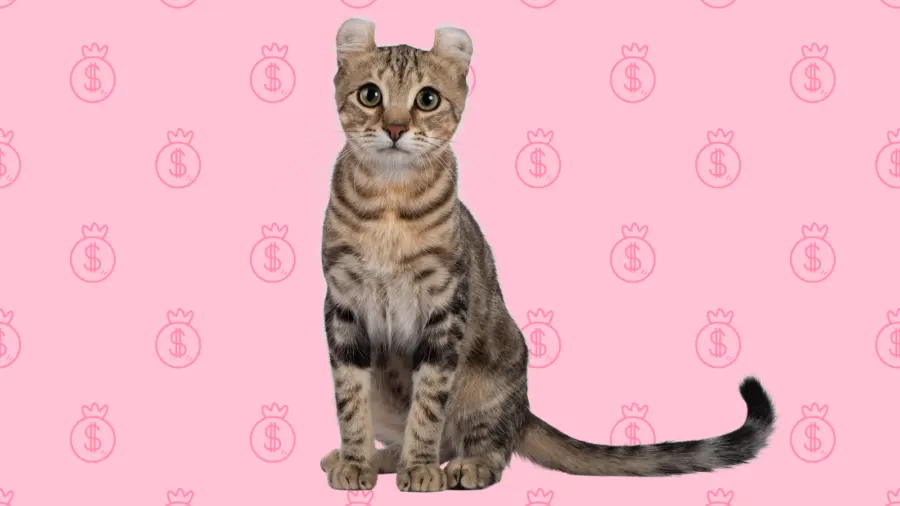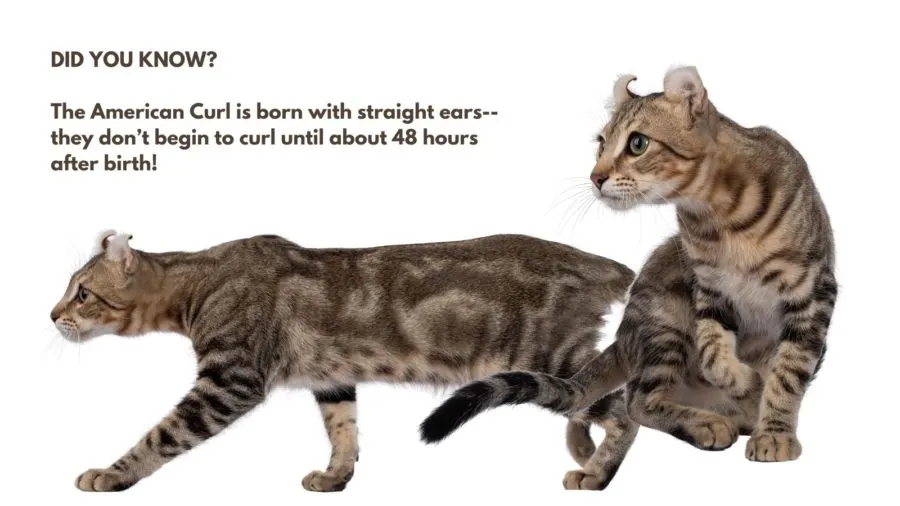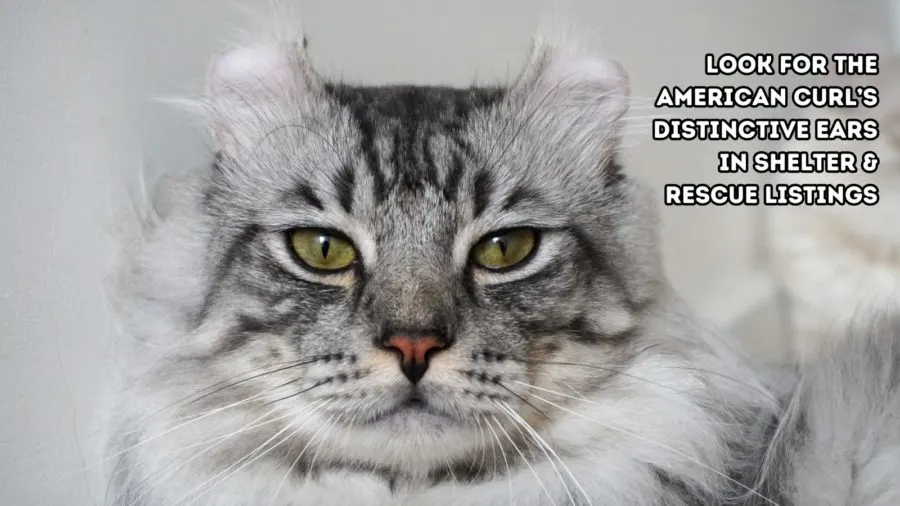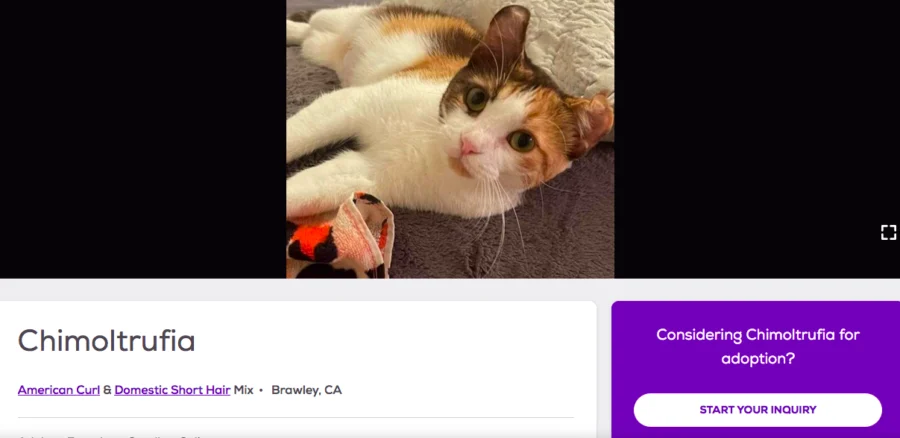Have you ever been captivated by the distinctive, curled ears of an American Curl cat? These charming felines aren’t just known for their unique appearance, but also for their affectionate demeanor. If you’re considering adding one of these playful cats to your family, it’s important to understand the American Curl price, whether that is at a breeder or through rescue.

American Curl Kitten Price at a Breeder
The price you’ll pay for an American Curl kitten can vary. Typically, you’re looking at a range from $1,000 to $2,500, depending on several factors.
The breeder’s reputation, the cat’s pedigree and even the distinctiveness of the ear curl can all affect the price. Other factors include gender (males tend to be less expensive) and coloration (smoke and solid colors typically cost more than tabby or bicolor cats). Be prepared to pay more for a show-quality kitten compared to one that’s considered pet-quality.
Remember, a higher price often reflects the breeder’s investment in health testing and breed preservation. A good breeder will have performed genetic tests on the parents prior to breeding–and will share the results of those tests with you.
American Curl cats, like any other breed, should undergo tests for Feline Leukemia Virus (FeLV) and Feline Immunodeficiency Virus (FIV). These are critical tests for any cat before breeding, as both conditions are highly contagious and can be passed to kittens.
How to Identify a Responsible American Curl Breeder

When considering purchasing a cat, it’s crucial to find a reputable and ethical breeder. This ensures that the cats are raised in a healthy, caring environment and are less likely to have medical or behavioral issues. Here are key factors a potential cat owner should look for:
- Health Testing and Veterinary Care: Reputable breeders perform regular health screenings on their breeding cats for common genetic diseases and provide veterinary care as needed. Ask for health clearances and vaccination records.
- Environment and Socialization: The breeder should raise kittens in a clean, safe, and stimulating environment. Socialization with humans and other animals at an early age is crucial for well-adjusted pets.
- Knowledge and Transparency: A good breeder will have extensive knowledge about the breed and be transparent about their breeding practices. They should be willing to answer all your questions thoroughly.
- No Immediate Availability: Ethical breeders don’t always have kittens available immediately as they don’t overbreed their cats. Be wary of breeders who always have kittens ready to go.
- Visitation Rights: Responsible breeders usually welcome potential buyers to visit and see where the kittens are raised, meet the parent cats, and observe the conditions.
- References and Reputation: A reputable breeder should be able to provide references from previous buyers and veterinarians. Online reviews and breeder registries can also be valuable sources of information.
- Contracts and Guarantees: Ethical breeders often provide a purchase contract that may include spay/neuter agreements, health guarantees, and return policies if you’re unable to keep the cat.
- No Shipping of Very Young Kittens: Avoid breeders who are willing to ship very young kittens. Ethical breeders will wait until the kitten is old enough and properly weaned.
- Member of Breeder Associations: Look for breeders who are members of recognized breeder associations such as The Cat Fanciers’ Association (CFA) and The International Cat Association (TICA) and adhere to their code of ethics.
- Education and Support: A responsible breeder will educate you about the breed’s needs and offer support and advice for the life of the cat.
- Active in Shows or Breed Clubs: Many reputable breeders are actively involved in cat shows or breed clubs, which is a sign of their commitment and passion for the breed.
- Avoiding Pet Stores: Cats from pet stores or puppy/kitten mills often come from less than ideal breeding conditions and may have health and behavioral issues.
The Price of an American Curl at a Rescue

Remember, adopting an American Curl is another a great option. There are many cats and kittens in shelters and rescues waiting for loving homes.
Petfinder allows you to sort adoptable cats and kittens by breed. Currently they list over 30 adoptable American Curls. You can adjust the search to identify your location and see adoptables in your local area.

Remember: shelters and rescues do their best to identify the breed of a cat–but it’s often anyone’s guess. However, with the American Curl’s distinctive ears, it’s much more likely that a cat identified as one is actually an American Curl or a mix!
Costs Beyond Adoption
Whether you get your American Curl at a breeder, rescue or shelter, the cost doesn’t stop there.
Before your new kitten arrives, you’ll need some essentials. A comfortable bed, a litter box, food and water dishes, a selection of toys, and a scratching post are all must-haves. Setting up your American Curl’s new home will likely cost between $200 and $500. Consider this an investment in your cat’s comfort and well-being.
Your American Curl’s ongoing care includes food and grooming expenses. Monthly, high-quality cat food can range from $30 to $150, depending on the brand and whether you are opting for wet or dry food.
Routine vet check-ups and vaccinations are also crucial for your cat’s health. Budget around $100 to $300 yearly for these visits.
American Curls are generally healthy, but like all breeds, they can have health issues. Set aside funds for potential health concerns. Pet health insurance can help manage unexpected costs and typically ranges from $20 to $50 per month.
Unforeseen expenses can arise, such as emergency vet visits, which can cost several hundred dollars. Costs for spaying or neutering, usually between $200 and $500, are essential for your cat’s health. Don’t forget about pet-sitting or boarding costs when you’re away from home.
More Posts You Might Like
What’s the Savannah Cat Price? Factors that Influence the Cost
What is the Price of a Persian Cat? {Breeders, Rescues & Shelters}
- 🎉 GIVEAWAY: Lord of the Pets Portrait of Your Cat! - November 26, 2024
- Review: Lord of the Pets Cat Portraits! - November 26, 2024
- Cat Adoption: FAQ You Might Have - June 28, 2024
